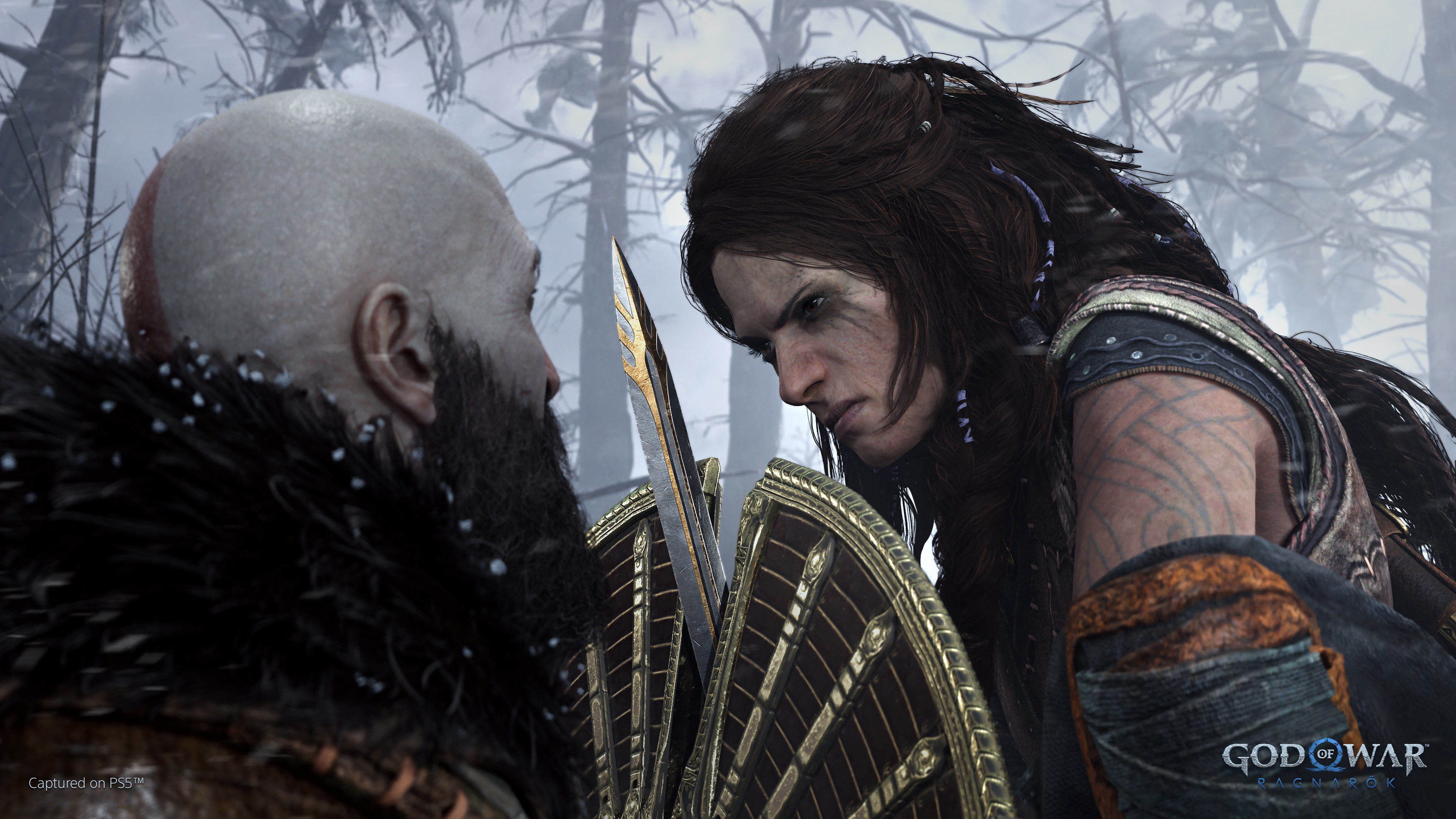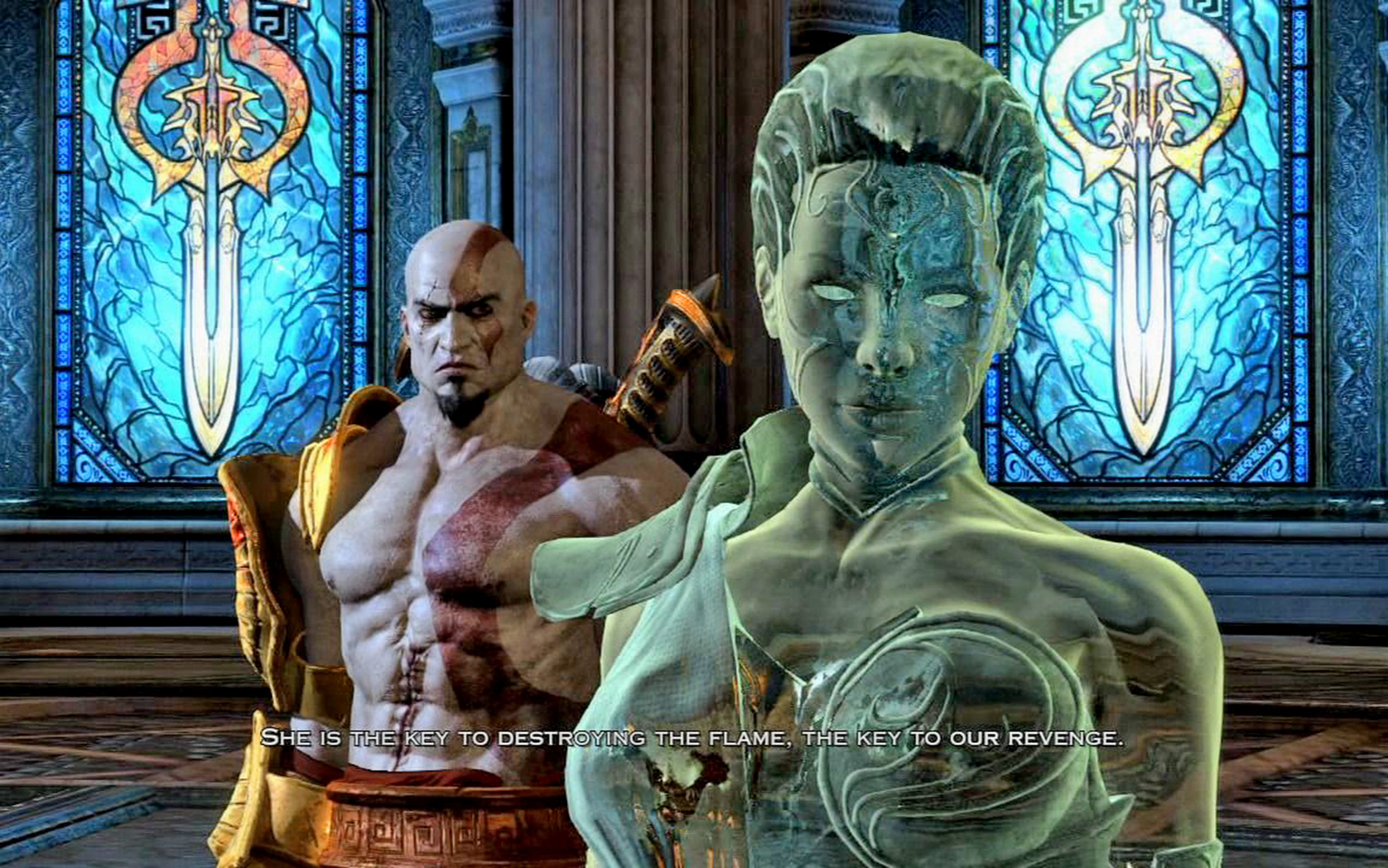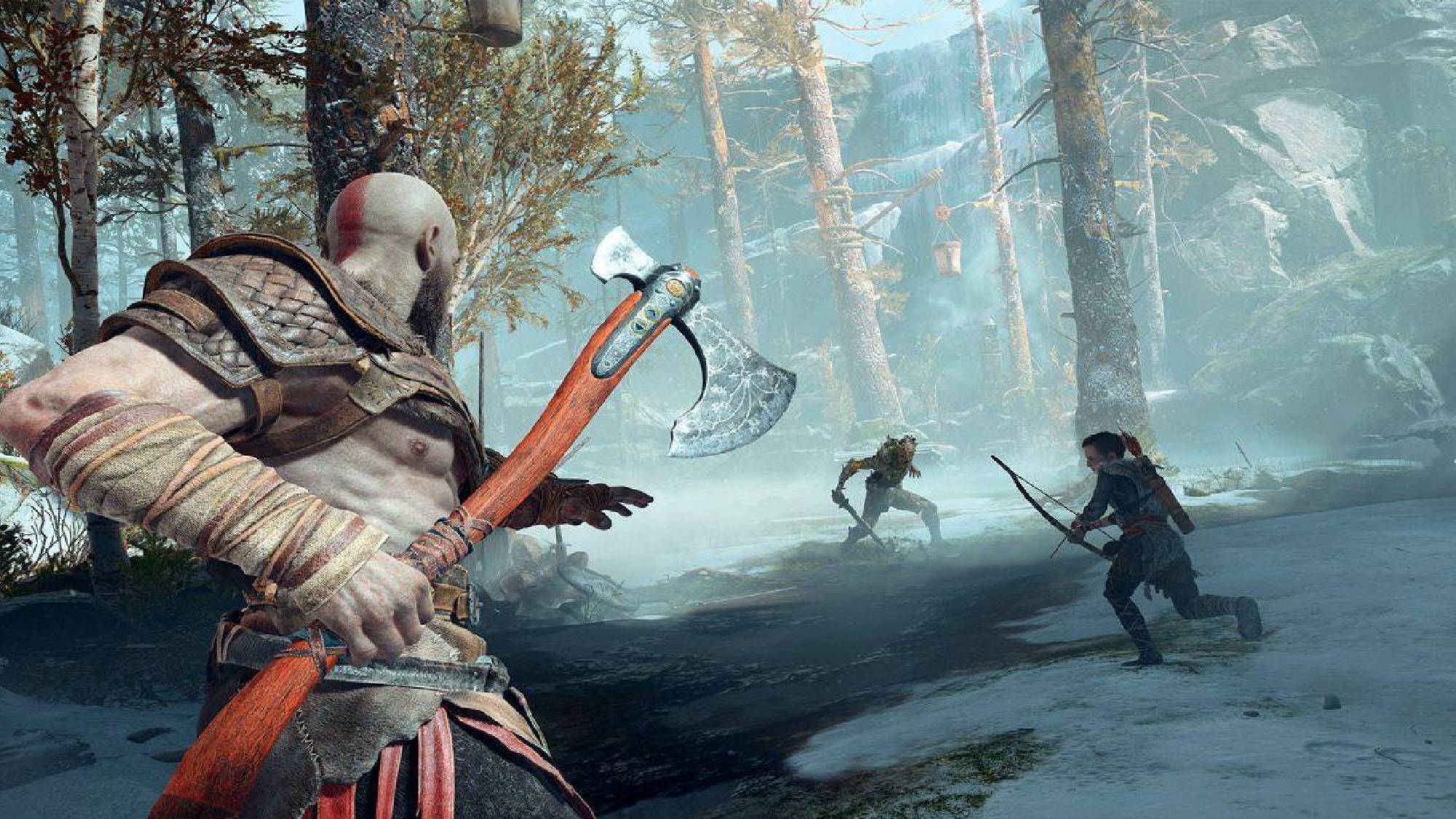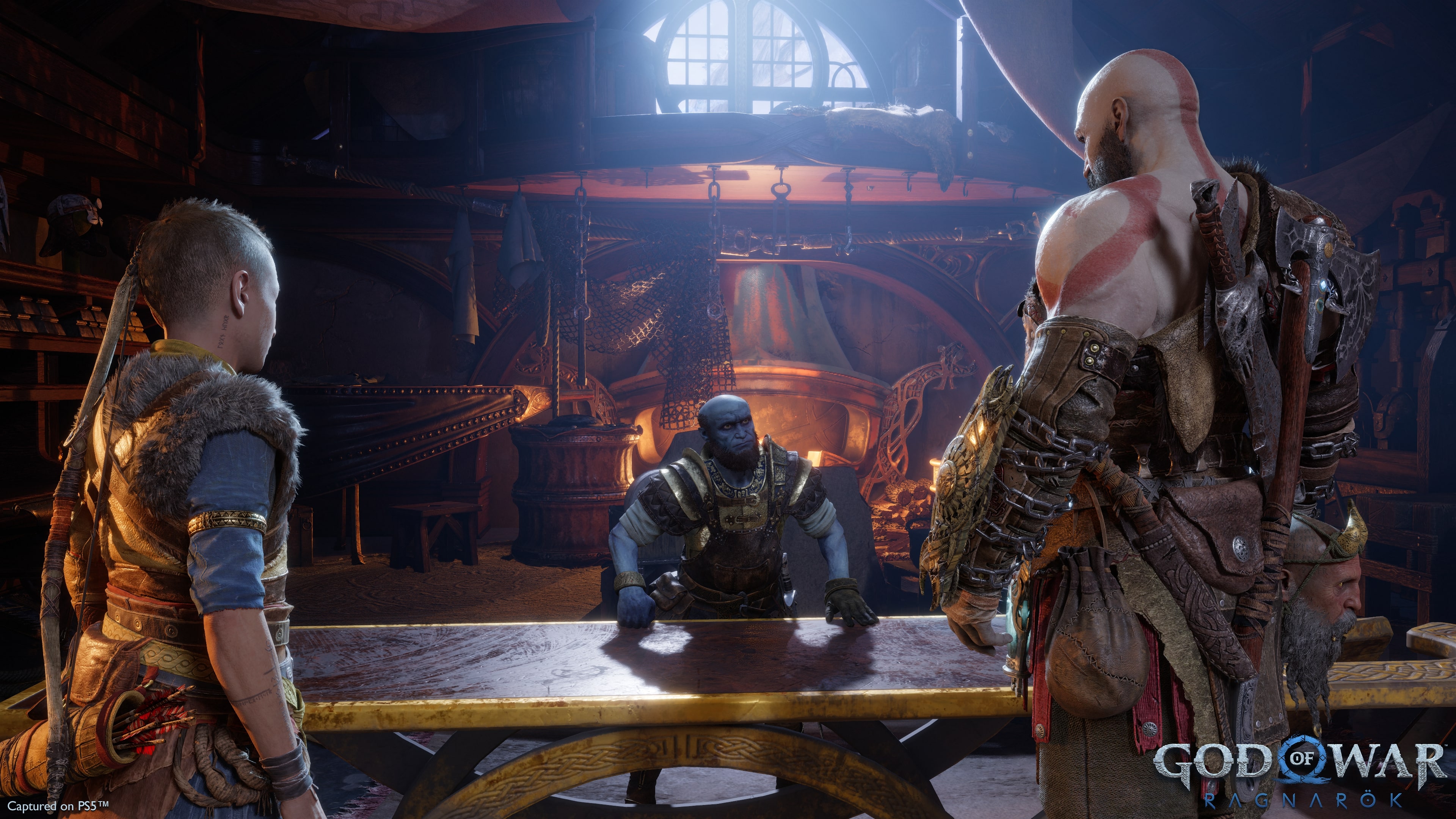God of War Ragnarök: What to know before you play
God of War Ragnarök can draw on lore from nine previous games

Here at Tom’s Guide our expert editors are committed to bringing you the best news, reviews and guides to help you stay informed and ahead of the curve!
You are now subscribed
Your newsletter sign-up was successful
Want to add more newsletters?

Daily (Mon-Sun)
Tom's Guide Daily
Sign up to get the latest updates on all of your favorite content! From cutting-edge tech news and the hottest streaming buzz to unbeatable deals on the best products and in-depth reviews, we’ve got you covered.

Weekly on Thursday
Tom's AI Guide
Be AI savvy with your weekly newsletter summing up all the biggest AI news you need to know. Plus, analysis from our AI editor and tips on how to use the latest AI tools!

Weekly on Friday
Tom's iGuide
Unlock the vast world of Apple news straight to your inbox. With coverage on everything from exciting product launches to essential software updates, this is your go-to source for the latest updates on all the best Apple content.

Weekly on Monday
Tom's Streaming Guide
Our weekly newsletter is expertly crafted to immerse you in the world of streaming. Stay updated on the latest releases and our top recommendations across your favorite streaming platforms.
Join the club
Get full access to premium articles, exclusive features and a growing list of member rewards.
After a four-year wait, God of War Ragnarök is almost here. And if you’ve been eagerly awaiting Kratos’ latest adventure, you can rest easy. In our God of War Ragnarök review, we awarded the game 4.5 out of five stars, and said that it’s “is an exceptional experience [and] arguably Santa Monica Studios’ finest effort yet.” Just like its predecessors, God of War Ragnarök is a satisfying adventure with complex lore and a deep story. And that means that if you haven’t played the series in a while, you might want a refresher on what’s already happened.
In our “Every God of War Game, ranked” piece, we broke down the relative merits of each game that’s come out so far. The article also reminded us that while there have been four “main” God of War games, there are actually nine altogether, and (almost) every one has something important to contribute to the story. With that in mind, here’s a story primer for the God of War series as a whole. Whether you’ve followed the franchise from the start, or simply jumped in with God of War (2018), here's what you’ll need to know before you play God of War Ragnarök.
Be aware that this piece contains major spoilers for the God of War series leading up to Ragnarök, but no spoilers for Ragnarök itself.
The Greek cycle

While God of War (2018) was a soft reboot for the franchise, everything that happened in the first eight games is still part of the continuity. Back in 2005, Sony released God of War on the PS2, and introduced the world to Kratos, the Ghost of Sparta. In this groundbreaking action game, players learned the story of Kratos, a Spartan general who struck a terrible bargain with Ares, the god of war. As a pawn of Ares, Kratos unwittingly murders his own family, and vows revenge. In the end, Kratos defeats Ares and becomes the new god of war.
Kratos’ godhood doesn’t last long, however, as Zeus strips Kratos of his powers in God of War II (2007, PS2). Kratos swears bloody vengeance on Zeus (notice a trend here?) and climbs all the way up Mt. Olympus, dispatching other deities and demigods as he goes. In the end, Kratos learns that he is actually the son of Zeus, which is why Zeus is so intent on killing him. Zeus casts Kratos down from Mt. Olympus, but Kratos enlists the help of the Titan, Gaia, and starts to climb up once again.
God of War III (2010, PS3) finishes the Greek cycle, with Kratos and the freed Titans ascend Mt. Olympus to bring down Zeus once and for all. Kratos works with the blacksmith god Hephaestus to recover Pandora’s Box, the contents of which can apparently kill even Zeus. Kratos’ quest to destroy Olympus wreaks havoc across Greece, and although he manages to kill Zeus in the end, he then turns his sword on himself. (The wound isn’t fatal, as we learn later.)
The PS2/PS3/PSP era also saw a number of spinoffs. In 2007, there was God of War: Betrayal for mobile phones, but it’s not hugely important to the story. Kratos kills a C-lister Greek god called Ceryx. I had to look him up, too.
Get instant access to breaking news, the hottest reviews, great deals and helpful tips.
God of War: Chains of Olympus (2008, PSP) and God of War: Ghost of Sparta (2010, PSP) were quite a bit more substantial, however. The former takes place before the first game; the latter, in-between the first and second. Chains of Olympus pits Kratos against the goddess of the seasons, Persephone, and tells us a bit more about Kratos’ relationship with his murdered daughter, Calliope. Ghost of Sparta is another family story, focusing on Kratos’ estranged brother Deimos, and how the Greek gods have shaped both of them.
God of War: Ascension came out for the PS3 in 2013, and is another prequel, pitting Kratos against the Furies. The gameplay is strong, but nothing much happens in the story, although it does foreshadow the relationship between Kratos and Zeus a bit.
The Norse cycle

Before God of War (2018) came out, there was God of War: A Call from the Wilds, a free text adventure that you could play on Facebook. You play as Atreus, the son of Kratos and a Norse woman named Faye, as he learns how to hunt with a bow and arrow. It’s a fun diversion, but not absolutely vital to the mythos.
God of War (2018) on the PS4, however, requires a more thorough plot breakdown. That’s because God of War Ragnarök is a direct sequel, and draws on the Norse story elements much more so than the older Greek ones.
After murdering most of the Greek pantheon and nearly killing himself in the process, and older, calmer Kratos retires to a mythical version of Scandinavia, where he lives with his new wife, Faye, and his new son, Atreus. When Faye dies, Kratos and a preteen Atreus must journey to the highest mountain in the land to scatter her ashes. But in so doing, they attract the attention of the Norse god, Baldur, and Kratos must start the cycle of deicide all over again.
While recapping the entire story would take too long (see the God of War Wiki for the full breakdown), there are a few important plot points to keep in mind for Ragnarök. First, throughout the course of the game, Kratos and Atreus seek the help of a woods witch, who turns out to be the Vanir goddess Freya. Baldur is Freya’s son, and in trying to keep him from harm, Freya unwittingly cursed him. The troubled relationship between the two drives a lot of the game’s story.
As they journey toward the mountain, Kratos and Atreus earn the scorn of other godly figures, including Magni and Modi. These ruthless warriors are the sons of Thor, the Norse god of thunder. After a series of tense encounters and one pitched battle, Kratos and Atreus kill both Magni and Modi, and realize that sooner or later, Thor will show up to claim vengeance.
Along the way, Kratos and Atreus befriend other prominent figures from Norse myth, such as the Dwarven blacksmiths Brok and Sindri, the talking head Mimir and the colossal Jörmungandr, aka the World Serpent. They also hear stories of the vicious, cruel Odin: king of the Norse gods and Baldur’s father.
After Kratos and Baldur finally have their godly showdown, Baldur attempts to murder Freya. Kratos kills Baldur before he can do so — even though Freya would have rather died than see her son come to harm. She vows revenge on Kratos, but lets him and Atreus go for now.
When Kratos and Atreus finally reach the top of the mountain, they learn that Faye was actually part of the jötnar, a mythical race of giants, and that her full name was Laufey. They also learn that she gave Atreus another name: Loki.
Where God of War Ragnarök picks up

In our God of War Ragnarök preview, we chronicled the game’s first few hours. A few years have passed since the events of the last game. Kratos and a teenage Atreus must survive Fimbulwinter, which has covered the land in snow and sapped much of their strength. They fear that Ragnarök, the twilight of the Norse gods, may come next, and that one or both of them may die.
Freya and Thor are still out for blood. Odin is still working in the shadows. And Faye might have foreseen a destiny for Atreus that Kratos knew nothing about.
If you want to know the rest, you’ll have to play the game for yourself — and we highly recommend that you do.

Marshall Honorof was a senior editor for Tom's Guide, overseeing the site's coverage of gaming hardware and software. He comes from a science writing background, having studied paleomammalogy, biological anthropology, and the history of science and technology. After hours, you can find him practicing taekwondo or doing deep dives on classic sci-fi.
 Club Benefits
Club Benefits










